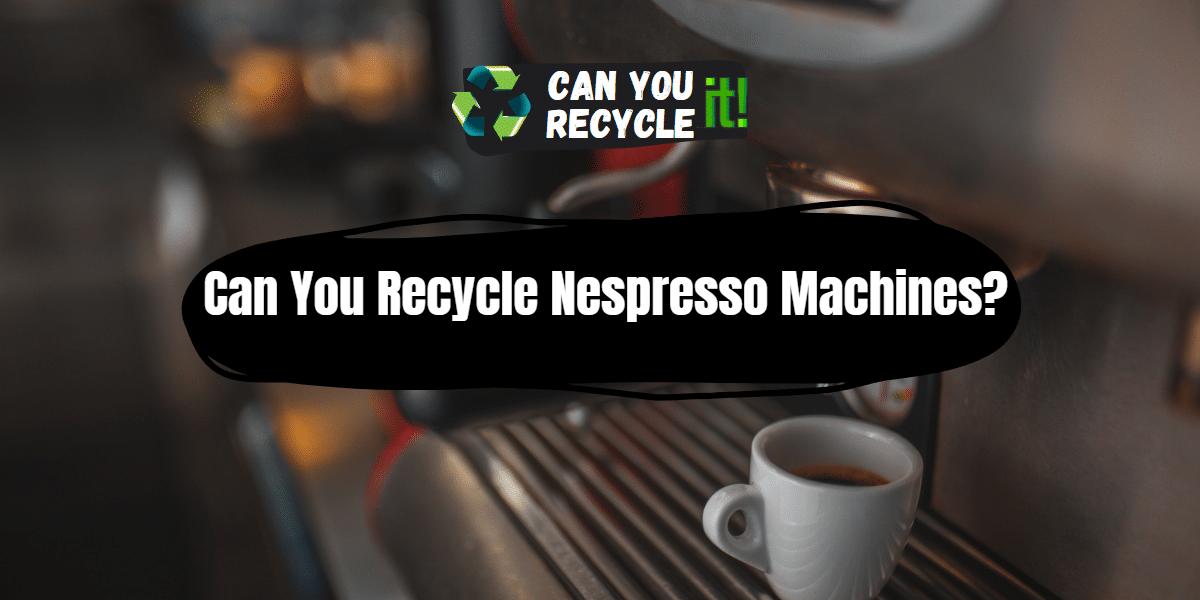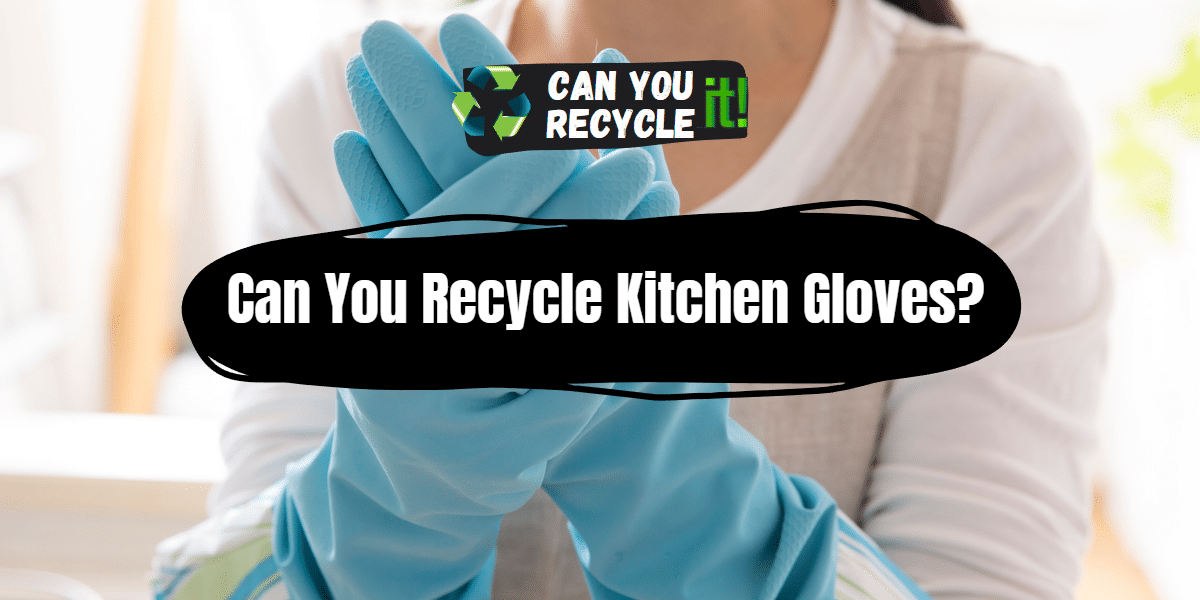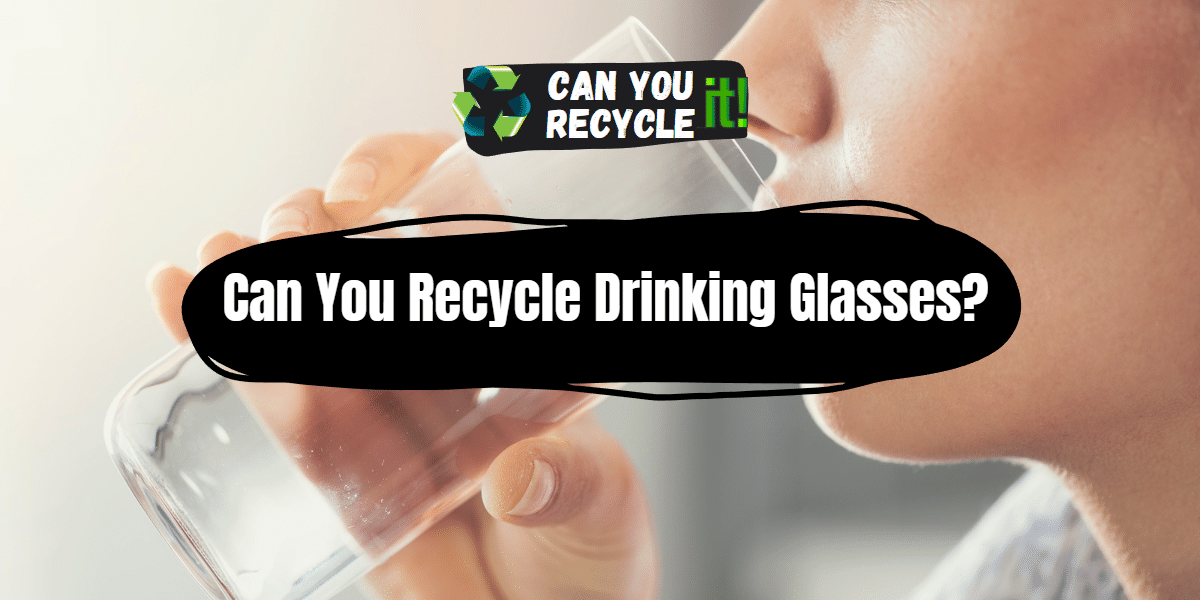Yes, you can recycle Nespresso machines. There are a few different ways to do this.
Nespresso machines have become popular among coffee enthusiasts for their convenience and quality. However, as we strive to reduce our environmental impact, it’s crucial to consider the proper disposal of these machines. In this article, we will explore whether Nespresso machines can be recycled, provide dos and don’ts for recycling, offer a step-by-step guide to recycling Nespresso machines, discuss what to do with machines that cannot be recycled, examine the environmental impact of recycling juice boxes, address frequently asked questions, and conclude with some final thoughts.
Table of Contents
Do’s and Don’ts
Regarding recycling Nespresso machines, following specific guidelines to ensure proper disposal and minimize environmental harm is essential. Here are some dos and don’ts to keep in mind
Dos
- Research local recycling programs: Start by checking with your local recycling facilities or municipal authorities to understand the recycling options available in your area. Some regions may have specific programs or drop-off points for electronic waste.
- Separate components: Before recycling your Nespresso machine, disassemble it as much as possible. Remove the water tank, drip tray, used capsules, and any other detachable parts. This will help facilitate the recycling process.
- Recycle aluminum capsules separately: Nespresso capsules are typically made of aluminum, which is recyclable. Many recycling programs accept aluminum, but checking whether they accept capsules specifically is crucial.
- Follow recycling instructions: If your Nespresso machine comes with specific recycling instructions, make sure to follow them. Manufacturers may guide how to disassemble the machine or direct you to authorized recycling centers.
- Support manufacturer recycling programs: Nespresso has its own recycling program called “Nespresso Recycling,” which allows customers to return used capsules and machines for recycling. Check if this program is available in your country and participate if possible.
Don’ts
- Throw the machine in the regular trash: Nespresso machines should not be discarded with regular household waste. They contain electronic components and materials that can harm the environment if disposed of improperly.
- Put the machine in the recycling bin without preparation: Simply tossing the Nespresso machine into the recycling bin without any preparation can cause processing issues. Take the time to disassemble the machine and remove any non-recyclable components.
5-Step Guide to Recycle Nespresso Machines
Here is a simple step-by-step guide to recycling your hardcover books:
Step 1
Empty and clean the machine
- Before you begin, ensure your Nespresso machine is turned off and unplugged.
- Please remove any remaining capsules from the machine and dispose of them separately in a designated recycling bin for aluminum or as per the manufacturer’s instructions.
- Follow the machine’s user manual to detach the water tank, drip tray, and any other removable parts.
- Clean the machine according to the manufacturer’s recommendations. Wipe away any coffee residue and ensure it’s dry before proceeding.
Step 2
Check for manufacturer recycling programs:
- Visit the Nespresso website or contact Nespresso customer service to inquire about their recycling program. Different countries may have specific procedures or drop-off points.
- If Nespresso offers a recycling program in your area, they will provide instructions on how to proceed. Follow their guidelines for packaging and returning the machine.
Step 3
Local recycling options: Place the paper pages, including the book’s spine, in the designated recycling bin. Ensure the paper is clean and contamination-free, such as food residue or liquids.
- Research local recycling facilities or electronic waste collection centers in your area.
- Check if they accept small electronic appliances like Nespresso machines. Some recycling centers have specific requirements or designated drop-off locations for electronic waste.
Step 4
Prepare for recycling:
- Disassemble the machine further, if possible, removing any remaining non-recyclable components.
- Place the machine and any recyclable parts in a suitable container for transport to the recycling facility. Ensure it is adequately protected during transit to prevent any damage.
Step 5
Recycling process:
- Deliver the Nespresso machine and associated parts to the designated recycling facility or follow the specific instructions provided by Nespresso.
- The recycling facility will process the machine, separating recyclable materials such as aluminum, plastic, and electronic components.
- These materials will then be sent to respective recycling streams, which can be reused or repurposed for new products.
What to Do with Nespresso Machines That Cannot Be Recycled
While Nespresso machines contain various recyclable components, certain parts may not be recycled through conventional means. Here are a few alternatives for dealing with Nespresso machines that cannot be recycled:
- Donate or resell: If your Nespresso machine is still functional and in good condition, consider donating it to a charitable organization, a friend, or a family member who can use it. You may also explore selling it through online marketplaces or local classifieds.
- Repurpose: Get creative and repurpose the Nespresso machine for other purposes. It can be transformed into a decorative item, a planter, or a storage container for small items. Let your imagination guide you!
- Contact the manufacturer: Reach out to Nespresso or the manufacturer of your specific machine model to inquire about any take-back programs or recommendations for the disposal of non-recyclable components. They may have specialized processes or instructions for handling these materials.
- Local waste management: Check with your local waste management authorities to understand if they have specific protocols or guidelines for the disposal of electronic waste. They may offer options for safe disposal or direct you to authorized facilities.
Environmental Impact of Recycling Nespresso Machines
Nespresso machines have become famous for their convenience in brewing coffee at home. However, it’s essential to consider the environmental impact of these machines, particularly when it comes to their disposal and recycling. Understanding the environmental implications can help us make informed decisions and contribute to a more sustainable future.
- Electronic Waste Reduction: Nespresso machines contain various electronic components, including circuit boards, heating elements, and pumps. When disposed of improperly, these machines contribute to the growing problem of electronic waste. By recycling Nespresso machines, we can prevent them from ending up in landfills, where they can release harmful chemicals and pollute the environment.
- Material Recovery: Nespresso machines contain different materials, such as plastic, metal, and electronic parts. Recycling these materials allows for their recovery and reuse, reducing the demand for virgin resources. By recycling Nespresso machines, we can conserve valuable materials and minimize the need for extracting raw materials through mining or manufacturing new products.
- Energy Conservation: Recycling Nespresso machines requires energy but still offers significant energy savings compared to producing new machines from scratch. When materials are recycled, the energy and resources invested in their initial production can be retained, reducing the environmental footprint of manufacturing new products.
- Proper Disposal of Coffee Pods: Nespresso machines often use single-use coffee pods that require separate consideration for recycling. These pods typically consist of a combination of plastic and aluminum. Nespresso has its own recycling program, where customers can return used coffee pods for proper recycling. By participating in such programs or using alternative eco-friendly coffee pods, we can ensure responsible disposal and recycling of the entire Nespresso coffee experience.
- Extended Product Life Cycle: Recycling Nespresso machines prolongs their product life cycle, keeping them out of landfills and maximizing their use. Extending the life of products through recycling reduces the need for frequent replacements, reducing resource consumption and waste generation.
It’s worth noting that Nespresso has made efforts to improve the sustainability of its machines and coffee pods. They have introduced recycling programs and are working towards using more recycled materials in their products. As consumers, we can support these initiatives by actively participating in Nespresso’s recycling programs and considering the environmental impact of our choices.
FAQs for Can You Recycle Nespresso Machines
Can Nespresso machines be recycled through curbside recycling programs?
Curbside recycling programs vary by location. While some programs accept small electronic appliances like Nespresso machines, others may not. It’s best to check with your local recycling authority or waste management service to determine the specific guidelines for electronic waste recycling in your area.
Are Nespresso capsules recyclable?
Yes, Nespresso capsules are typically made of aluminum, which is recyclable. Many recycling programs accept aluminum, but checking if they accept Nespresso capsules is essential. Nespresso has its own recycling program, allowing customers to return used capsules for recycling.
What happens to Nespresso machines and capsules after they are recycled?
After Nespresso machines and capsules are recycled, the materials undergo processing to separate and recycle various components. Aluminum can be melted and reused, while plastic and electronic components can be repurposed or recycled into new products.
Conclusion and final thoughts 💭
Recycling Nespresso machines is essential in minimizing our environmental impact and reducing electronic waste. We can ensure these machines are responsibly handled by following the dos and don’ts of recycling, preparing the machines properly, and exploring available recycling programs.
When recycling is impossible, donating, repurposing, or contacting the manufacturer can provide alternative solutions for Nespresso machines that cannot be recycled. Remember to check with local recycling facilities for specific guidelines and explore ways to reduce waste.
Let’s strive to make sustainable choices and contribute to a cleaner, greener future. Together, we can make a difference through responsible recycling practices and conscious consumption.





Leave a Reply